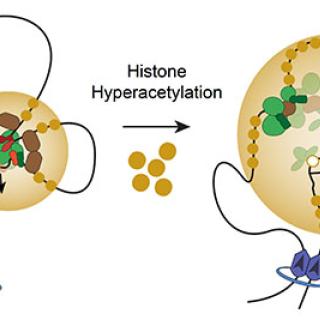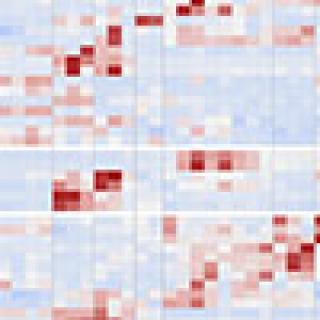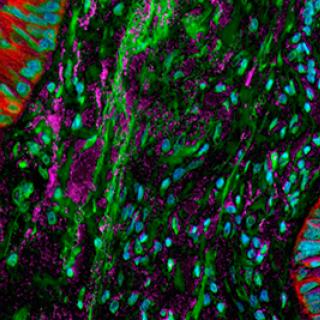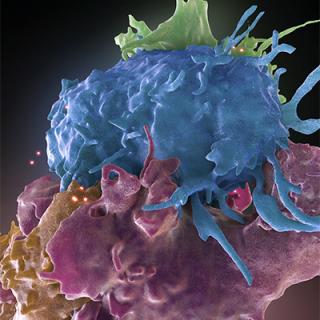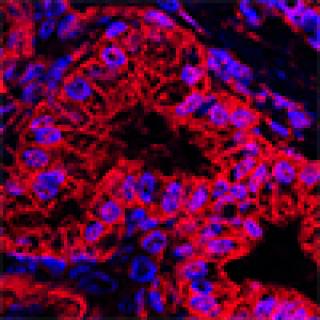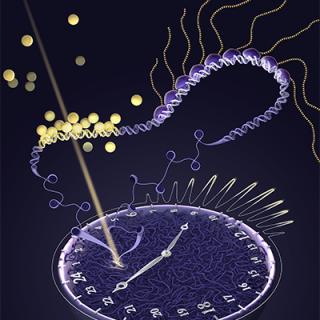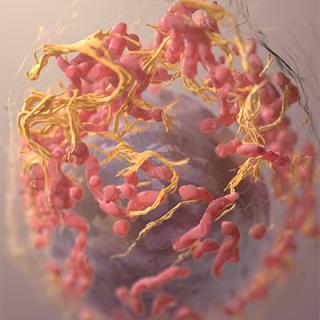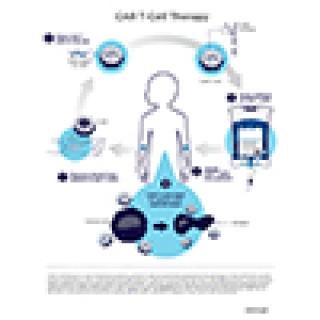Our Discoveries
Histone deacetylase inhibitors block cancer-driving gene networks by obstructing DNA folding
Studies of the pediatric cancer rhabdomyosarcoma have revealed an unexpected way to intervene in cell-identity-determining networks that are abused by many aggressive cancers.
Read MoreDifferences between anti-viral and anti-tumor T-cell responses could impact immunotherapy
A finding published in Cell Reports holds promise for resolving some of the conundrums surrounding CD4+ T cells and their potential in fighting cancer. The work found that CD4+ T-cell responses to tumor antigens are quite different from those to infections, highlighting a need to re-think how to harness the power of CD4+ T cells.
Read MoreDifferences between anti-viral and anti-tumor T-cell responses could impact immunotherapy
A finding published in Cell Reports holds promise for resolving some of the conundrums surrounding CD4+ T cells and their potential in fighting cancer. The work found that CD4+ T-cell responses to tumor antigens are quite different from those to infections, highlighting a need to re-think how to harness the power of CD4+ T cells.
Read MoreNew findings hint at therapies for African Americans with lung cancer
A study published in Nature Communications reveals that two genes tend to be mutated at higher rates in cancerous lung tissue samples taken from African Americans, hinting that these patients may benefit more from certain therapies targeting those genes.
Read MoreUnlocking the key to HIV persistence
Even though antiretroviral therapies have allowed many people to live long lives, ridding the body of HIV completely has been an elusive goal ever since the discovery in the 1980s that HIV causes AIDS. New research from the Center for Cancer Research shows that proviral DNA sequences and their integration at specific sites could provide clues for researchers developing drugs to eradicate AIDS.
Read MoreComputational analysis leads to potential new drug combination for pancreatic cancer
A computer analysis has been able to predict that low levels of asparagine, an amino acid required for protein synthesis, combined with the shutdown of a stress response pathway can lead to reductions in the fitness of a tumor. These combined findings could potentially lead to new combination therapies to treat aggressive tumors, such as those found in pancreatic cancers.
Read MoreDiversity of liver cancer cells can impede tumors’ response to immunotherapy
New research from the NCI’s Center for Cancer Research shows that understanding the impacts of cellular diversity on liver tumors’ microenvironment suggests ways to make immunotherapy effective for more patients.
Read MoreAdvanced imaging technology reveals pulsed hormone release regulates gene transcription
Using advanced microscopic imaging technology, CCR investigators have correlated a pulsed pattern of hormone release with bursts of transcription, the process in which the genetic information encoded by DNA is written into RNA. They are the first researchers to observe this process at a gene-specific level.
Read MoreTumor composition of melanoma indicates potential responses to immunotherapy
The number of genetic mutations in a tumor is thought to influence how well melanoma may respond to immunotherapy, but new research in mice and supported by preliminary human data reveals that the diversity of mutations within a tumor may be a better indicator of response to therapy.
Read MoreFDA grants breakthrough therapy designation for new CAR T-cell therapy for B-cell acute lymphoblastic leukemia
In August 2019, the U.S. Food and Drug Administration granted breakthrough therapy designation to an experimental immunotherapy being developed in the Center for Cancer Research (CCR) for the treatment of B-cell acute lymphoblastic leukemia (ALL), a type of blood cancer. The designation will advance CCR’s development and testing of an immunotherapy for children and young adults whose B-cell ALL is resistant to CD19-targeted immunotherapies.
Read More